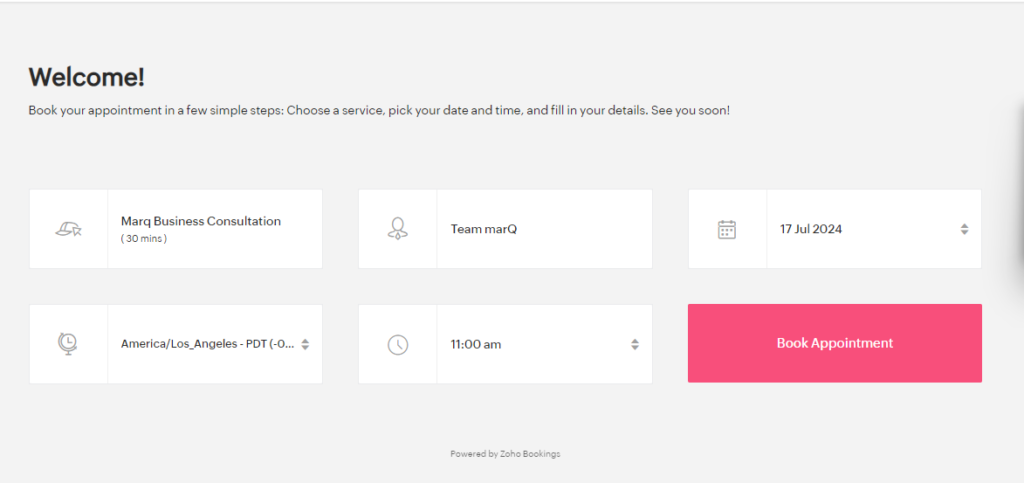What Are the Best Website Solutions for Small Businesses?
TABLE OF CONTENTS
- Introduction
- The Importance of a Strong Online Presence for Small Businesses
- Understanding Website Solutions for Small Businesses
- Key Factors to Consider When Choosing Website Solutions
- Website Builders for Small Businesses
- Affordable Web Hosting for Small Businesses
- E-Commerce Platforms for Small Businesses
- Responsive Website Design
- Business Website Templates
- Integrating Social Media and CRM Tools
- SEO Considerations for Small Business Websites
- Security Features for Small Business Websites
- Customization and Scalability
- Case Studies: Businesses Using SAP
- Common Challenges and How to Overcome Them
- Future Trends in Website Solutions for Small Businesses
- Conclusion
- FAQs
Introduction
In today’s digital age, having a robust online presence is non-negotiable for small businesses. Whether you’re running a local bakery or a niche online store, the right website solution can propel your business to new heights. But with so many options out there, how do you choose the best website solutions for your small business? Let’s break it down.

The Importance of a Strong Online Presence for Small Businesses
Your website is often the first impression customers have of your business. It’s your digital storefront, and it needs to be inviting, easy to navigate, and reflective of your brand. A well-designed website can help you reach a wider audience, establish credibility, and ultimately drive sales.
Understanding Website Solutions for Small Businesses
Website solutions encompass everything from the platform you build your website on to the hosting service that keeps it online. They include website builders, hosting services, e-commerce platforms, and even the design templates you use. Each component plays a crucial role in the success of your online presence.

Key Factors to Consider When Choosing Website Solutions
Before diving into specific solutions, it’s essential to understand what to look for:
Budget
Your budget will largely determine the type of website solution you can afford. While some solutions are free or low-cost, others may require a significant investment.
Ease of Use
Especially if you’re not tech-savvy, you’ll want a platform that’s easy to navigate and update without needing a developer’s help.
Scalability
As your business grows, your website needs to grow with it. Choose a solution that offers scalability, so you don’t outgrow your website in a few years.
Support
Reliable customer support is a must. Look for platforms that offer 24/7 support, tutorials, and a strong community.

CLAIM YOUR MARKETING STRATEGY SESSION TODAY!
WE REVIEW YOUR MARKETING EFFORTS & SHOW YOU AREAS TO IMPROVE.
Website Builders for Small Businesses
Website builders are an excellent option for small businesses with limited budgets and technical expertise. They offer drag-and-drop functionality, pre-designed templates, and a range of customization options.
Wix
Wix is known for its user-friendly interface and flexibility. It offers a wide range of templates suitable for various industries, making it a top choice for many small businesses.
Squarespace
Squarespace is another popular website builder, particularly favored by creatives. It offers beautifully designed templates that are fully customizable.
Weebly
Weebly is an excellent choice for e-commerce-focused businesses. It offers robust tools for online stores, including inventory management and payment processing.
Affordable Web Hosting for Small Businesses
Your website’s performance depends heavily on your hosting service. Affordable web hosting doesn’t mean compromising on quality. Here are some options that offer great value:
Bluehost
Bluehost is a top choice for small businesses due to its affordability and excellent customer support. It offers a range of hosting plans, including shared, VPS, and dedicated hosting.
HostGator
HostGator is known for its reliable uptime and flexibility. It’s an excellent option for small businesses looking for affordable, scalable hosting solutions.
SiteGround
SiteGround offers fast and secure hosting with outstanding customer service. It’s slightly more expensive than other options but worth the investment for businesses that prioritize performance.
E-Commerce Platforms for Small Businesses
If you plan to sell products or services online, choosing the right e-commerce platform is crucial. Here are some top picks:
Shopify
Shopify is the go-to platform for e-commerce. It offers everything you need to run an online store, from product listings to payment processing and shipping integration.
WooCommerce
WooCommerce is a WordPress plugin that turns your site into an online store. It’s highly customizable and integrates seamlessly with WordPress.
BigCommerce
BigCommerce is another robust e-commerce platform that offers scalability and a range of features to support your growing business.
Responsive Website Design
With the increasing use of mobile devices, having a responsive website design is no longer optional—it’s essential. A responsive design ensures your website looks and functions well on all devices, from desktops to smartphones.
Why Responsive Design Matters
Responsive design improves user experience, boosts SEO rankings, and increases conversion rates. Google prioritizes mobile-friendly websites, so if your site isn’t responsive, you’re likely missing out on valuable traffic.
Tools for Creating Responsive Designs
Many website builders and templates come with built-in responsive design features. However, you can also use tools like Bootstrap or Foundation to create a responsive site from scratch.
Business Website Templates
Templates are a quick and easy way to give your website a professional look without the need for a designer. Most website builders and platforms offer a variety of business website templates.
Choosing the Right Template
When selecting a template, consider your industry, brand identity, and the specific features you need. For example, if you’re running an online store, choose a template with built-in e-commerce functionality.
Customizing Your Template
While templates are a great starting point, customizing them to match your brand is essential. This includes updating colors, fonts, and images to reflect your business’s unique personality.
Integrating Social Media and CRM Tools
Social media and CRM tools are vital for engaging with customers and managing relationships. Integrating these tools with your website can streamline operations and enhance customer experience.
Social Media Integration
Integrate social media platforms like Facebook, Instagram, and Twitter to share content, engage with customers, and drive traffic to your website.
CRM Integration
Customer Relationship Management (CRM) tools like HubSpot or Salesforce can be integrated into your website to track customer interactions, manage leads, and improve sales processes.

CLAIM YOUR MARKETING STRATEGY SESSION TODAY!
WE REVIEW YOUR MARKETING EFFORTS & SHOW YOU AREAS TO IMPROVE.
SEO Considerations for Small Business Websites
Search engine optimization (SEO) is critical for driving organic traffic to your website. Here’s how to optimize your site:
Keyword Research
Conduct thorough keyword research to identify the terms your potential customers are searching for. Incorporate these keywords naturally into your website content.
On-Page SEO
Optimize on-page elements like title tags, meta descriptions, and header tags. Ensure your content is well-structured and provides value to your visitors.
Local SEO
If your business serves a local audience, focus on local SEO strategies. This includes optimizing your Google My Business listing and incorporating location-based keywords.
Security Features for Small Business Websites
Security is a top priority for any website, especially if you’re handling customer data. Here’s what you need
to know:
SSL Certificates
An SSL certificate encrypts data transferred between your website and its visitors. This is crucial for protecting sensitive information, such as credit card details.
Regular Updates and Patches
Ensure your website’s software is always up-to-date to protect against vulnerabilities. Most platforms and hosting services offer automatic updates.
Backup Solutions
Regular backups are essential for recovering your website in case of data loss or a security breach. Look for hosting services that offer automated backups.
Case Studies: Success Stories
Seeing how other small businesses have succeeded with their website solutions can provide valuable insights and inspiration.
Local Boutique Case Study
A local boutique used a combination of Shopify and a customized template to create a visually appealing online store that doubled their sales within a year.
Digital Marketing Agency Case Study
A digital marketing agency leveraged WordPress with a custom CRM integration to manage client relationships, resulting in a 30% increase in client retention.
Common Challenges and How to Overcome Them
Building and maintaining a website isn’t without challenges. Here are some common issues and how to address them:
Limited Technical Knowledge
If you’re not tech-savvy, consider using a website builder with drag-and-drop functionality. Alternatively, you can hire a professional for the initial setup and maintenance.
Budget Constraints
There are plenty of affordable options out there, but be careful not to sacrifice quality for cost. Invest in a reliable hosting service and choose a platform that offers scalability.
Time Management
Running a small business is time-consuming, and managing a website can add to the workload. Consider automating tasks like backups, updates, and social media posting to save time.
Future Trends in Website Solutions for Small Businesses
The world of web development is constantly evolving. Here’s what to watch for in the coming years:
AI-Powered Websites
Artificial intelligence (AI) is making its way into website design and development, offering personalized experiences and automated customer service.
Voice Search Optimization
With the rise of voice-activated devices, optimizing your website for voice search is becoming increasingly important. This includes using natural language and long-tail keywords.
Enhanced Security Measures
As cyber threats evolve, so too must your website’s security. Expect to see more advanced security features, such as AI-powered threat detection and blockchain-based security protocols.
Conclusion
Choosing the right website solution for your small business is crucial for building a strong online presence. Whether you’re just starting or looking to upgrade your existing site, consider factors like budget, scalability, and ease of use. By selecting the right website builder, hosting service, and design features, you’ll be well on your way to creating a website that not only looks great but also drives business growth. For more personalized solutions, visit Marq Networks to explore how we can help bring your business online.
FAQs
A: The most cost-effective solution depends on your specific needs, but website builders like Wix and Weebly offer affordable plans with robust features.
A: Absolutely! Many website builders are designed for users with little to no technical experience, offering drag-and-drop functionality and easy customization.
A: Mobile responsiveness is critical. With more users accessing the internet via mobile devices, a responsive design ensures your site looks great on all screens.
A: Look for reliability, speed, security features, and customer support. Services like Bluehost and SiteGround are great options for small businesses.
A: Focus on keyword research, on-page SEO elements, and local SEO strategies. Regularly updating your content and ensuring a fast, secure website will also boost your SEO.
ABOUT THE AUTHOR:

Syeda Hufsa
Syeda Hufsa is the Content Creation Specialist at marQ Networks. Syeda Hufsa loves writing both personally and professionally. She graduated from reupdated university field of Computer science.



